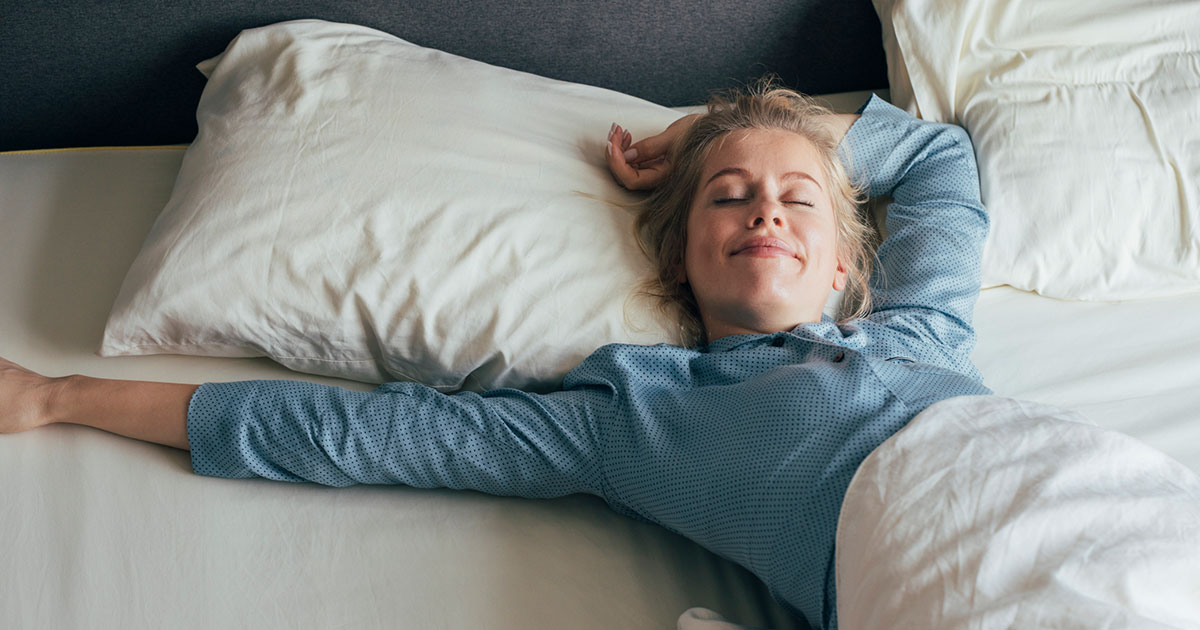
Hitting the hay is one of the best ways to benefit your overall health and longevity. However, a growing number of people have trouble getting a full night of sleep. Are you one of them? You could be, considering Philadelphia is actually ranked one of the worst cities for sleeping!
This is why the third month of the year features two massive health campaigns about the importance of a good night’s rest.
Keep reading to kickstart your knowledge about healthy snoozing with 11 fascinating sleep facts.
For most of us, a good seven to nine hours of sleep is what’s needed to function healthily from day to day, but that’s not always the case for everyone. The National Sleep Foundation says that some of us can get by happily with as little as six hours, while others can’t rev up their engines properly until they’ve snoozed for a solid 10.
So how much sleep should you get? Sleep specialist and author Dr. Michael Breus suggests going to bed precisely 7.5 hours before your normal wake time. “If you’re not waking up five minutes before your alarm after a week, push your bedtime a half an hour earlier and continue to do so until you can wake up without your alarm.”
Being consistent with your bedtime and rise times can help with your overall sleep routine. Once you know how many hours you need per night, strive to keep to the same bedtime and wake time.
Hormones that control hunger can get all out of whack if you’re not getting adequate rest, leading folks to gobble up more calories throughout the day to fill the void. Moreover, sleep.com says that people who are sleep-deprived are not only simply hungrier, but their cravings for high-calorie, fatty foods, like chips, candy, and pretzels, can shoot up by a whopping 45%. Be sure to prioritize sleep right along with your diet and workout routine. Just be sure to do your workout at least 4-6 hours prior to going to bed – exercising too close to bedtime can make it difficult to fall asleep.
The best sleep environments are dark and quiet. This means that falling asleep with the TV or computer screen turned on is not recommended. However, there are some tech tools out there that can actually help you sleep.
People who experience urban white noise—honking horns, cars driving by, people on the street – actually tend to sleep more soundly than those who sleep in silence. Unfortunately, this does not apply to the sound of snoring. Almost 45% of adults snore and their partners blame this as the top reason they’re not sleeping better. That’s probably why 1 in 4 people don’t share a bed with their spouse.
Driving when you’re tired is dangerous. Over 100,000 traffic accidents happen because someone is nodding off behind the wheel. A study showed that staying awake for 16 hours straight zaps your performance just as much as if you had a blood-alcohol level of .05%. That’s only .03 points below the legal limit!
Make sure you’re alert enough to drive safely.
Dreams are one of the most mysterious aspects of sleep. In fact, the website Dreams says that most people forget 50% of their dreams five minutes after waking up, and then as much as 99% is gone after another five minutes. Good luck trying to keep that dream journal!
The average human spends one-third of their life sleeping. That’s a lot of time, but it’s nothing when you compare this to cats. Cats spend two-thirds of their life sleeping…which sounds like a lot more than a catnap.
We’ve all experienced that scary sensation of jolting ourselves out of sleep while dreaming about something like falling from a tall building. That’s called a “hypnic jerk,” and, while it is typically deemed perfectly healthy and normal, it may be due to something else. Sleep apnea, anxiety, or even too much caffeine before bedtime can increase the likelihood of a hypnic jerk. Another interesting fact: Young people are the most common victims of hypnic jerks, and the phenomenon decreases as we age.
British sleep expert and professor Chris Idzikowski claims to have identified six different sleeping positions and how each one says something about a person’s character. For example, he claims that people who sleep in the fetal position curled up in a ball on their side, are sensitive and shy. Sleep spread-eagle style on your back? You’re probably a good listener and tend to make friends easily. Check out more of what he says here.
The foods you eat before hitting the sack can set you up for a good or bad night’s sleep. Foods to avoid before bed include:
For your best night’s sleep, have a filling meal at dinnertime a few hours prior to going to bed. If you’re too hungry to fall asleep, opt for a nutritious bedtime snack like raw almonds or bananas.
Research out of the American College of Cardiology gives us one more reason to catch a catnap during the day. People who took advantage of a midday snooze were more likely to have a noticeable drop in blood pressure compared with those who didn’t nap – and a drop in blood pressure can reduce the risk of cardiovascular events such as heart attack. The benefits of midday sleep are generally on par with other lifestyle changes, such as salt and alcohol reduction. But make sure not to nap more than 1 hour, or sleep past 2 pm. Not only might it annoy your coworkers, but it could also potentially disrupt your nighttime sleep.
Remember to keep vybe urgent care centers in mind if you’re experiencing symptoms related to poor sleep habits, or are having trouble sleeping due to a persistent condition. We’ll fix you up so you can get back to being, and feeling like, a much better you.
FIND YOUR VYBE